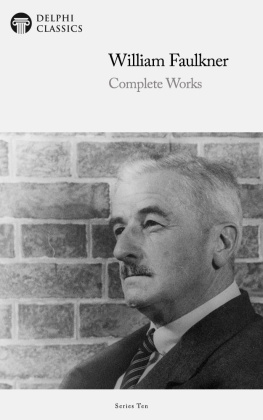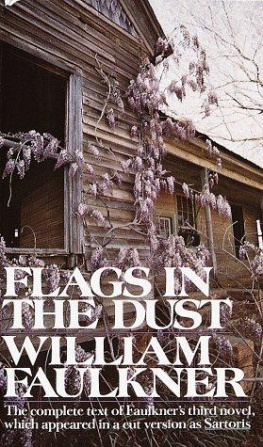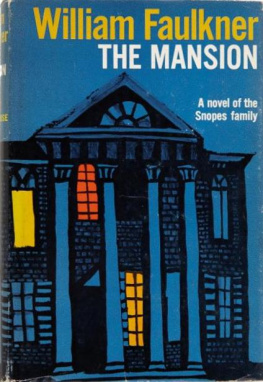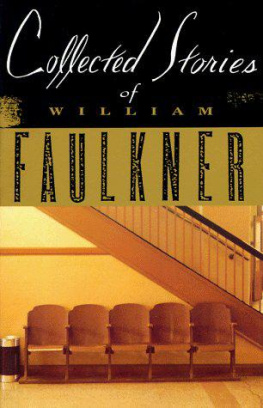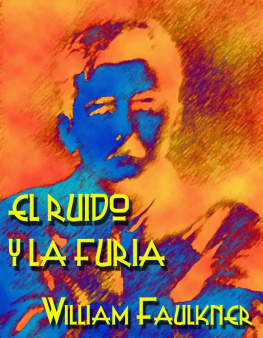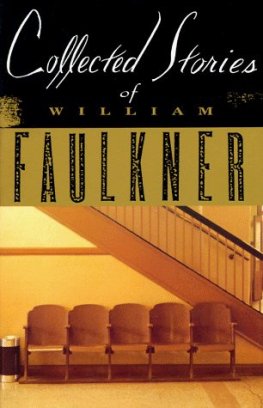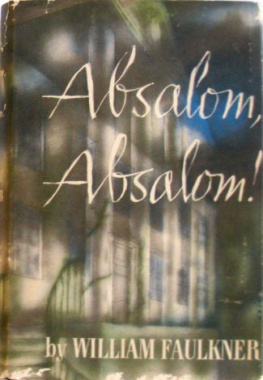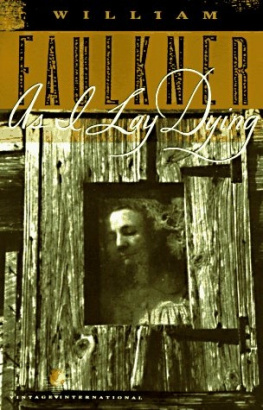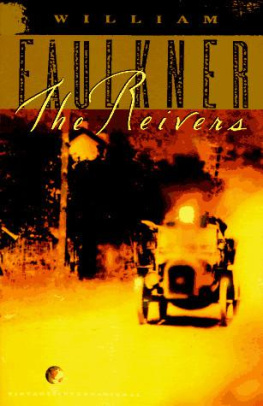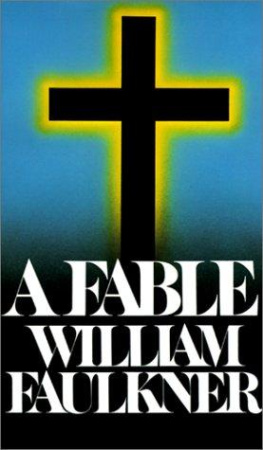The Complete Works of
WILLIAM FAULKNER
(1897-1962)

Contents

Delphi Classics 2019
Version 2


Browse our Main Series

Browse our Ancient Classics

Browse our Poets

Browse our Art eBooks

Browse our Classical Music series

The Complete Works of
WILLIAM FAULKNER

By Delphi Classics, 2019
COPYRIGHT
Complete Works of William Faulkner

First published in the United Kingdom in 2019 by Delphi Classics.
Delphi Classics, 2019.
All rights reserved. No part of this publication may be reproduced, stored in a retrieval system, or transmitted, in any form or by any means, without the prior permission in writing of the publisher, nor be otherwise circulated in any form other than that in which it is published.
ISBN: 978 1 78877 950 0
Delphi Classics
is an imprint of
Delphi Publishing Ltd
Hastings, East Sussex
United Kingdom
Contact: sales@delphiclassics.com

www.delphiclassics.com
Interested in modernism?
Then youll love these eBooks

Explore Modernists at Delphi Classics
The Snopes Trilogy

(1940)
(1957)
(1959)
The Novels

New Albany, Mississippi William Faulkner was born in a single-storey clapboard house in New Albany in 1897.

The plaque commemorating the site of the birthplace

Union County Heritage Museum in New Albany features a literary garden devoted to the author, with a large number of plants mentioned in Faulkners work, as well as markers showing the appropriate quotations. The garden stands close to the location of the birthplace site.
Soldiers Pay

In his youth William Faulkner exclusively wrote poetry and he did not complete his first novel until 1925, at the age of twenty-eight. His literary influences were varied and he later stated that he modelled his early writing on the Romantic era in late eighteenth and early nineteenth century England. He attended the University of Mississippi (Ole Miss) in Oxford, enrolling in 1919, going three semesters before deciding to drop out in November 1920. Faulkner had been permitted to attend classes at the university as his father had a job there as a business manager. He often skipped classes and received a D grade in English. However, some of his poems were published in campus publications.
Although today Faulkner is largely identified with the state of Mississippi, he was residing in New Orleans, Louisiana, when he finished work on what is generally considered to be his first novel, Soldiers Pay. The influence of Sherwood Andersons modern experimental approach to fiction is clearly discernible in this work. Indeed, Anderson was a close friend and assisted Faulkner in his work, recommending his work to his own publisher.
Soldiers Pay is one of only a few of the authors novels that is not set in his fictional Yoknapatawpha County, Mississippi. Originally released by the New York-based publishing house Boni & Liveright on 25 February 1926, the narrative revolves around a wounded aviator, who returns home to a small town in Georgia following the conclusion of the First World War. He is escorted by a veteran of the war, as well as a widow whose husband was killed in the conflict. The aviator has suffered a horrendous head injury, leaving him in a state of almost perpetual silence, as well as blindness. Several conflicts revolving around his return include the state of his engagement to his fiance, the desire of the widow to break the engagement in order to marry him herself and the romantic intrigue surrounding the fiance who had been less than faithful to the aviator in his absence.
By the standards of the day, Soldiers Pay and Faulkners second novel Mosquitoes were commercial failures, as neither sold more than 1,200 copies after their initial release. However, since Faulkner was awarded the 1949 Nobel Prize for Literature, Soldiers Pay has remained in print. First edition copies are valuable among collectors, often selling for upwards of $35,000.

The first edition
CONTENTS

The first editions title page

Faulkner serving as a cadet in Toronto, 1918
SOLDIER
The hushd plaint of wind in stricken trees
Shivers the grass in path and lane
And Grief and Time are tideless golden seas
Hush, hush! Hes home again.
CHAPTER ONE

A CHILLES: D ID YOU shave this morning, Cadet?
Next page
